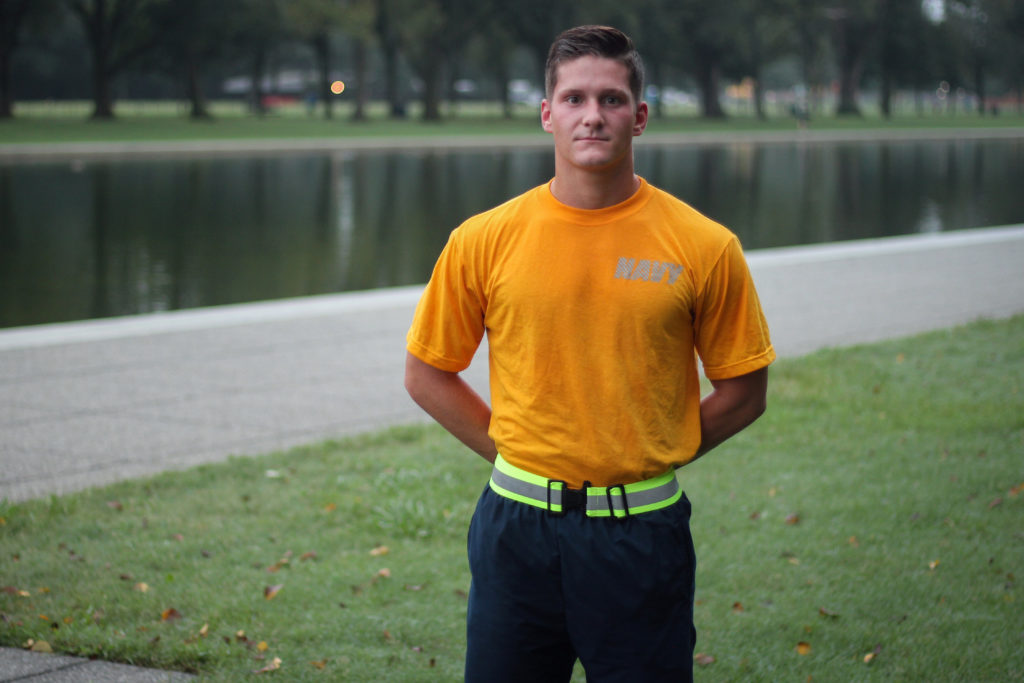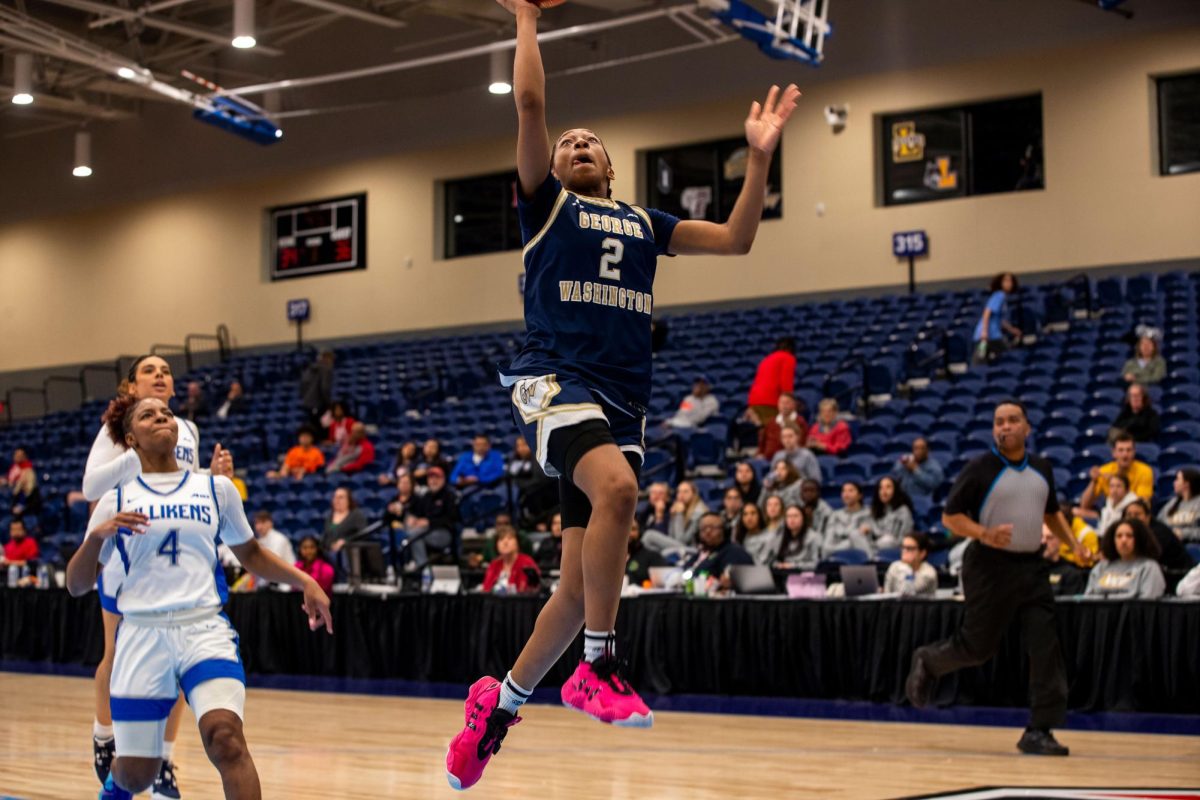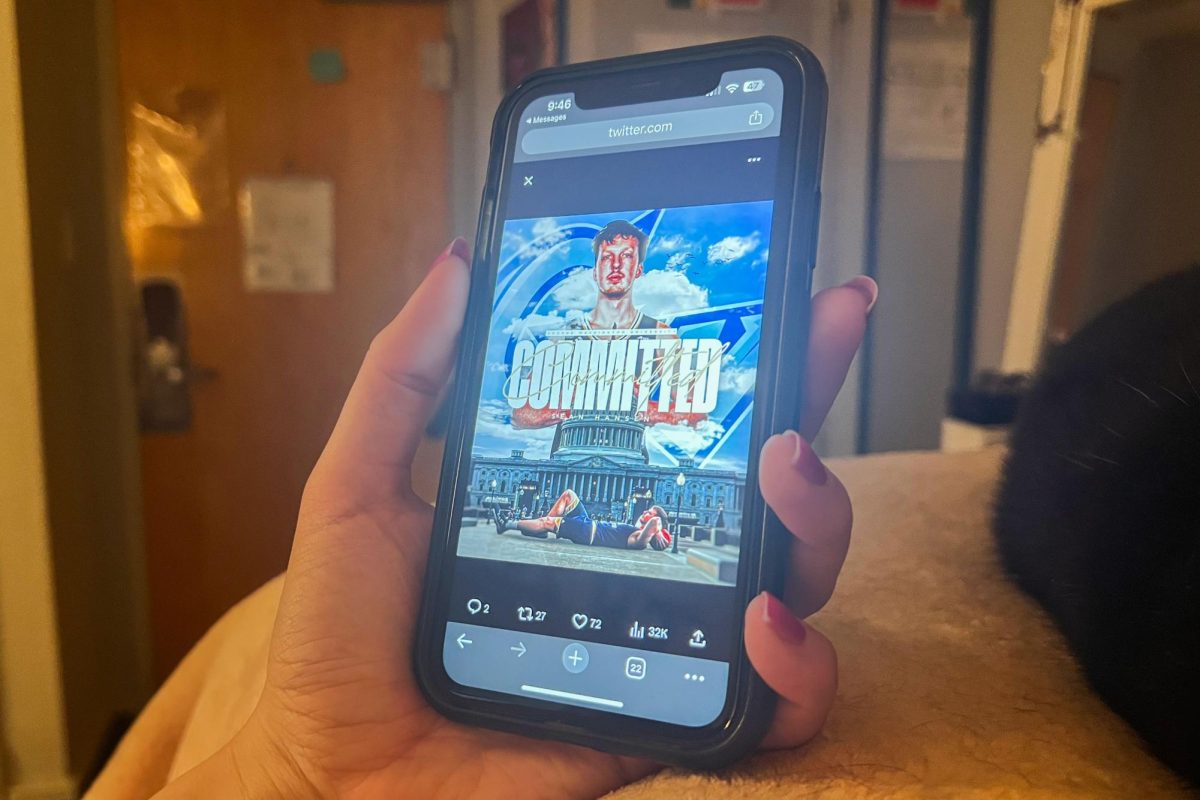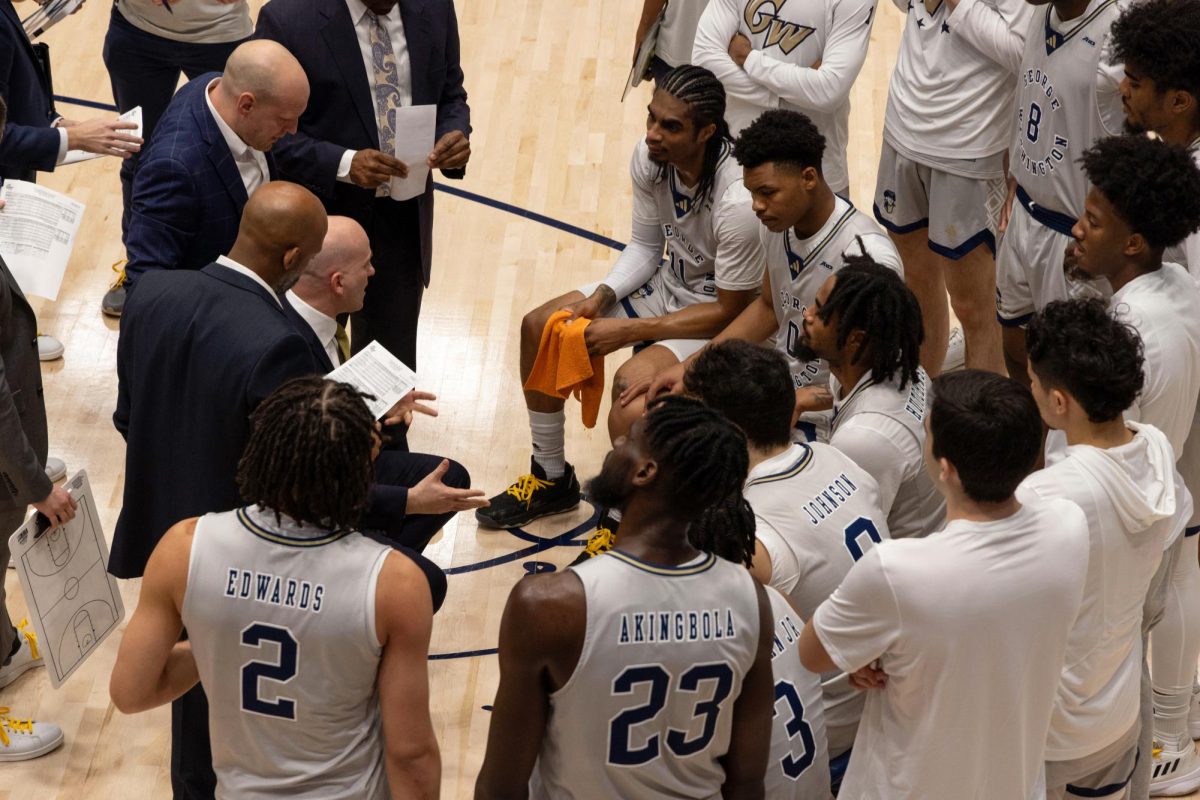Two student-athletes are bringing military training and discipline to Division I competition.
Senior Riley Tejcek, an infielder for softball, completed her final training with the Marine Corps Platoon Leaders Course over the summer. Sophomore Nick Tomczyk, a diver on the men’s swimming and diving team, is currently a member of GW’s Naval Reserve Officers Training Corps program.
On top of the extra physical training that comes with participating in their respective programs, both athletes said being a part of the military has helped with their leadership on the field and in the pool and made them remember they are always competing for something bigger than themselves.
“It’s all about a team unit, it’s not about you, it’s about the people next to you,” Tejcek said. “That’s the important thing, is it’s not about you.”
Tomczyk said he wanted to be in the military starting at a young age because he had relatives in the Army. But as a diver who was constantly in the water, he was drawn to the Navy instead, he said.
As a member of GW’s NROTC program, Tomczyk’s military life is blended into his college and athletic life.
A typical day for him starts at 5 a.m. and ends around midnight. In the span of 19 hours, Tomczyk fits in six hours of class, physical training for NROTC and two diving practices before spending his evenings at the library studying.
“Once I’m done with one thing, I focus on the next thing and that’s how I get through it,” Tomczyk said. “I just take it one step at a time each day.”
[gwh_image id=”1065579″ credit=”Hatchet File Photo” align=”none” size=”embedded-img”]Senior Riley Tejcek, an infielder for softball, completed her final training with the Marine Corps Platoon Leaders Course over the summer. [/gwh_image]
As a squad leader, Tomczyk is responsible for seven other people in his platoon. He said he takes the leadership and physical training he practices in NROTC into the pool as a diver, but also applies what he learns from the swimming and diving captains to his squad leader position.
“Being a part of a team definitely helps because I’m learning from the captains of the swim and dive team how they’re being leaders,” he said. “I can take stuff off of them and transfer it to the unit to be a leader.”
Unlike NROTC, Platoon Leaders Course training takes place during two six-week summer courses that are spread out over two years instead of integrated into a student’s life, so Tejcek’s workload is more manageable.
Tejcek – who finished her final six-week training this summer – said filling out medical paperwork and gaining government clearances took months, but soon she found herself starting her first six-week training three days after competing in the Atlantic 10 Championship her freshman year.
On top of softball practices and workouts, Tejcek does body-weight training and long-distance runs and rucks to stay in shape and be body-weight efficient when she is not in formal military training.
As a captain of the softball team, Tejcek said she reminds her teammates that even when they walk up to the plate alone, they are still competing for the teammates in the dugout – the same team mentality she experiences in the military.
“They call me ‘Marine’ at practice,” Tejcek said. “They’ll like say funny things like ‘I don’t want to be next to Riley in a workout,’ but it comes from a good place because they supported me so much.”
For both athletes, being a part of something bigger than themselves – both in the military and on their respective teams – is a rewarding experience. After graduation, both athletes will be commissioned into their respective branches.
“Those are the people that are going to impact me the rest of my life,” Tejcek said. “Above all else is the relationships with people I’ve met along the way that keep me going and keep me motivated, absolutely.”
Tomczyk said it is “fulfilling” knowing he can come out of college an officer in the Navy ready to contribute and serve the country.
“Knowing that it’s helping me grow as a person, but that will in turn help other people too,” he said.





